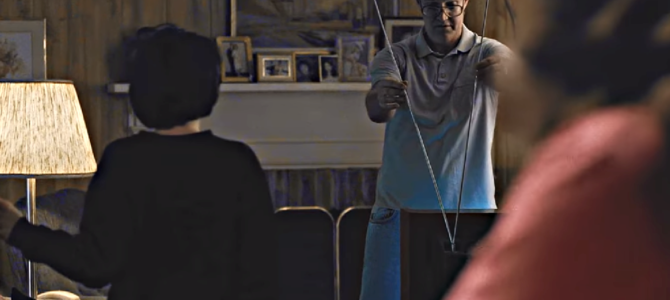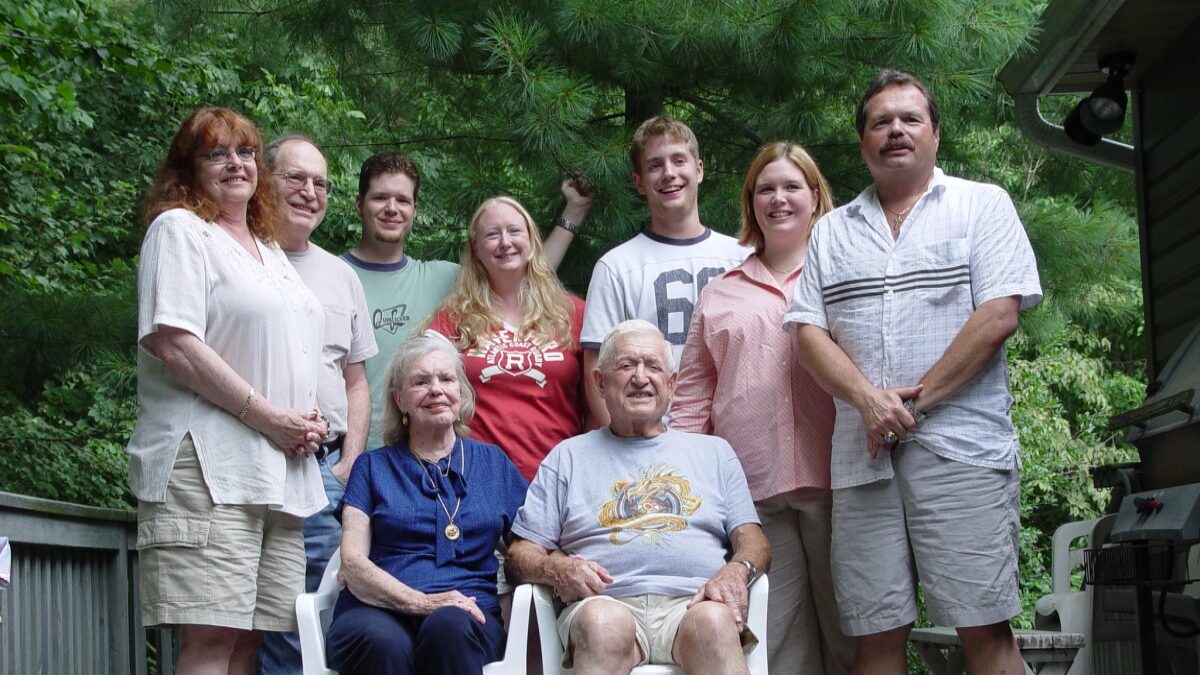
Note: Spoilers for both seasons of “Stranger Things” follow.
The clueless suburban father has become a stock character in American film and television, and Netflix’s hit show “Stranger Things” fills the role perfectly with Ted Wheeler. He’s a punchline: the oblivious dad, sleeping in his recliner in front of the TV while his kids Mike and Nancy are getting into all sorts of trouble—both the ordinary middle and high school kind, and the special sort that can happen when a nearby government lab’s experiments on a telekinetic child accidentally open a rift leading to a terrifying parallel (or is it parasite?) dimension.
Wheeler has no idea what is going on or what his children are up to, and he swallows the eventual government cover-up without question. To be sure, many of us, especially those with better fathers, may find him ridiculous. D. C. McAllister off-handedly calls him “the worst father ever,” and while hyperbolic, the sentiment is understandable. But Wheeler may not look so bad to those whose fathers were abusive or absent (or both in turns). Indeed, despite his flaws, he’s not even close to being the worst father in “Stranger Things.”
Eleven’s “Papa” literally stole her from her mother at birth to experiment on her. Will’s father Lonnie walked out on his family some years ago; he’s a jerk in season one and in season two is mentioned only when Jonathan recounts a story to Will about “the night dad left.” Dustin’s father is absent and we know nothing about him. New addition Maxine (Max) moved away from her father after her parents’ divorce and mother’s remarriage, and her stepfather is a nasty piece of work.
Presence Is Better than Absence or Abuse
There are better father figures in the show, of course: Lucas’ dad seems good, Bob would have been a great stepfather for Will and Jonathan, and Hopper tries hard to care for Eleven, though taking care of a traumatized adolescent girl with telekinetic powers is a tough assignment for anyone.
But compared to the cavalcade of absent or abusive fathers in the show, the boring Wheeler doesn’t seem so bad. For those who have suffered from paternal cruelty, abandonment, and irresponsibility, Ted Wheeler may look pretty good. He provides for his family, is living with them and available if needed (though he might have to be woken up first), is not capriciously cruel, and even offers some good advice and discipline to his children, albeit ineffectively.
Should he pay more attention to his wife, Karen, and their children? Yes, of course. He is still only a middling father, not a great one. But the boring bourgeois stability and virtues he provides are still important, even if ignored or disparaged.
Our popular culture scorns and ridicules fathers like Ted Wheeler far beyond what their faults deserve. In particular, our self-styled creative class has long cultivated a disdain for ordinary life and middle-class virtues—an attitude often most enthusiastically adopted by those who themselves are not particularly exceptional, except in their rejection of bourgeois norms. It is easy to ignore the value of middle-class norms when one grew up with them, or at least remnants of them. They may seem ossified, boring, constraining, and artificial. In contrast, a more bohemian life can be very appealing, especially to the young and unattached.
Bohemian Behavior Hurts People
Jonathan most strongly expresses these sentiments in “Stranger Things,” but Bob puts to shame Jonathan’s adolescent contempt for normal, ordinary people. Despite being a pudgy guy who works at Radio Shack and likes Kenny Rodgers, Bob proves himself capable of self-sacrificial heroism as well as everyday kindness. Even the less-loveable Wheeler provides his family security and stability that Will and Jonathan lack, despite the efforts of their mother to fill the gaps their deadbeat father has left.
Quiet, clean, polite, and comfortable suburban life may seem bland, but it is much better than raising children amidst the screaming matches, drama, filth, rudeness, cruelty, and poverty that are often part of family breakdown. A bit of bohemian individualism can spice society up, but sprinkling it into every family is a recipe for disaster.
Writing for The Federalist, Glenn Stanton recently summarized some of the research on marriage and financial security, and it confirms what we all know: those who get married before having children then stay married are much more likely to be financially secure. It’s not just about the money. At this point everyone knows that children whose fathers are absent or abusive are much more likely to struggle in life. From education, to substance abuse, to crime, to practically any other metric, the research shows that it is usually best for children to be raised by their biological parents in a stable home.
We are still finding out how traumatizing our culture’s experiments in family instability have been, as they play out over multiple generations. In an insightful recent essay, Mary Eberstadt argues it is family breakdown, which complicates our ability to answer one of the most basic questions of human existence, “Who am I?”, that has given rise to the poisonous prominence of identity politics in American today. We still don’t know how much harm family breakdown will cause, but it is already very bad. And against the damage wrought by family breakdown, government programs struggle in vain.
Dads Who Show Up Beat Dads Who Don’t
Even mediocre fathers like Ted Wheeler are likely better than the alternatives. A father’s departure frequently results in a carousel of stepfathers and potential stepfathers, with their own problems and methods of abuse. In “Stranger Things,” Max misses her real father, and is instead stuck with a violent stepfather and a stepbrother who takes his rage out on her and her friends. It is easy to take stability, security, and calm, along with the bourgeois virtues that produce them, for granted, but they are sorely missed when a society abandons them.
Ted Wheeler is the sort of guy who, after cluelessly making a family dinner table argument worse, plaintively asks “What’d I do?” Still, he is there and trying to be a decent father to his children. When he and Karen arrive at the aftermath of season one’s climactic showdown, she rushes to hug Mike while he ambles over and talks to one of the paramedics—an emotionally staid but practical response. Even his wholesale acceptance of the government’s cover-up makes sense from the perspective of character, rather than viewer, knowledge.
In the school of life, Ted Wheeler falls asleep in parenting class a lot, but at least he’s showing up and doing the assignments. America would be better if more fathers did at least that much, and if our culture didn’t denigrate them so eagerly.









